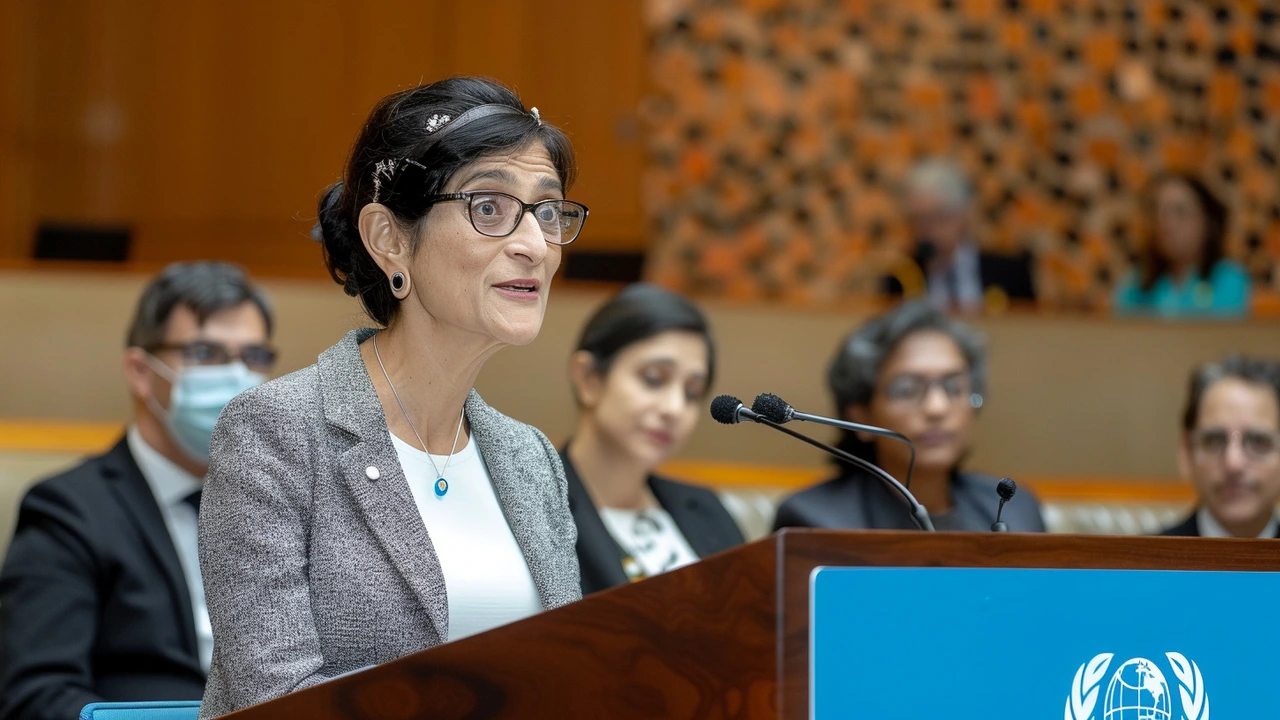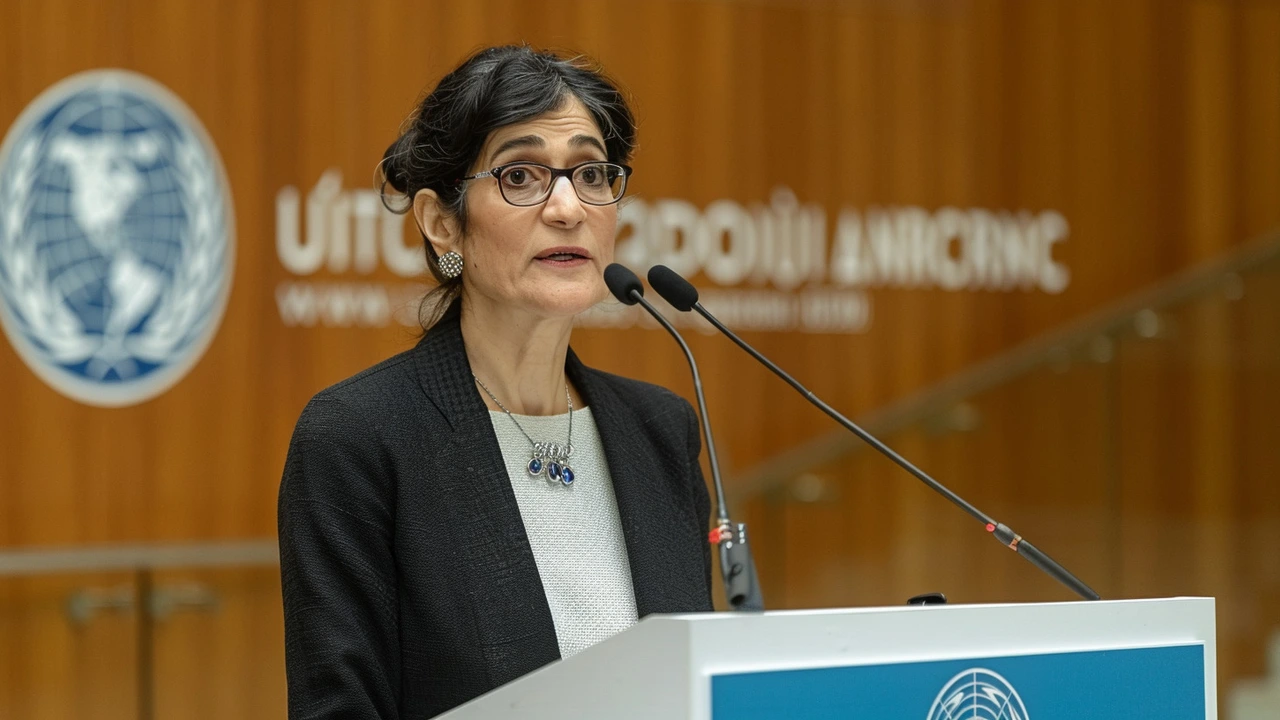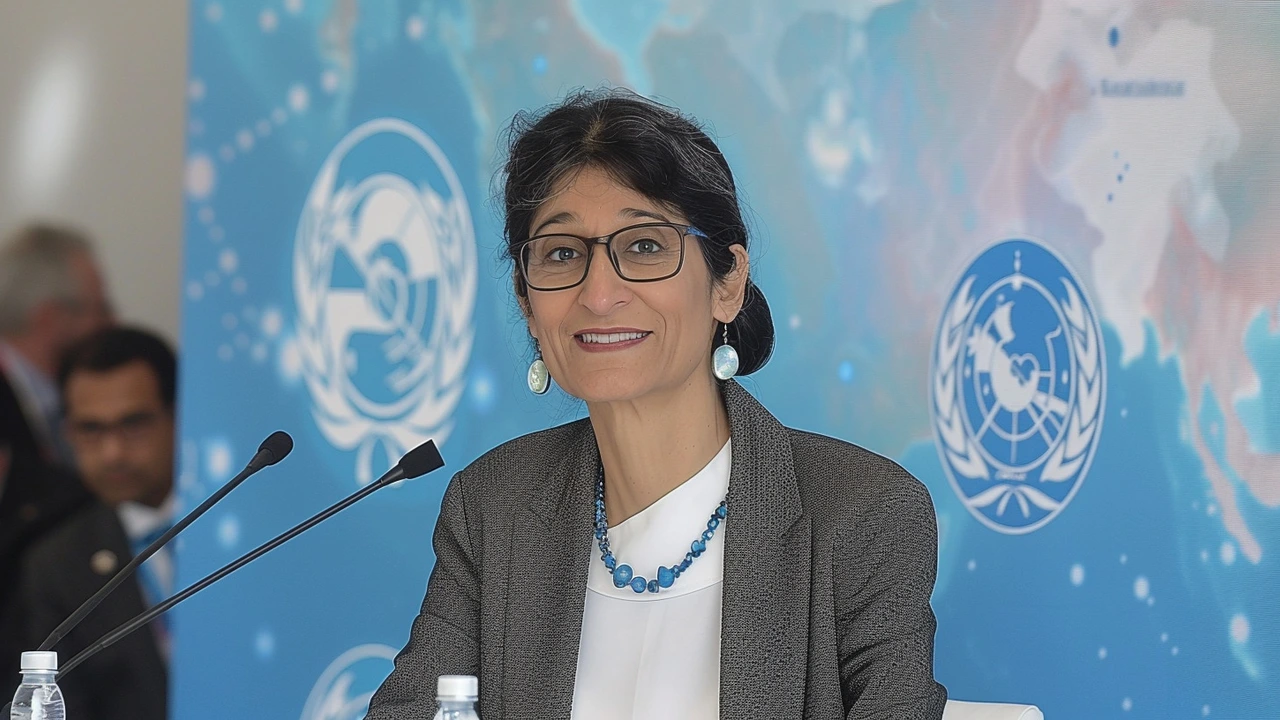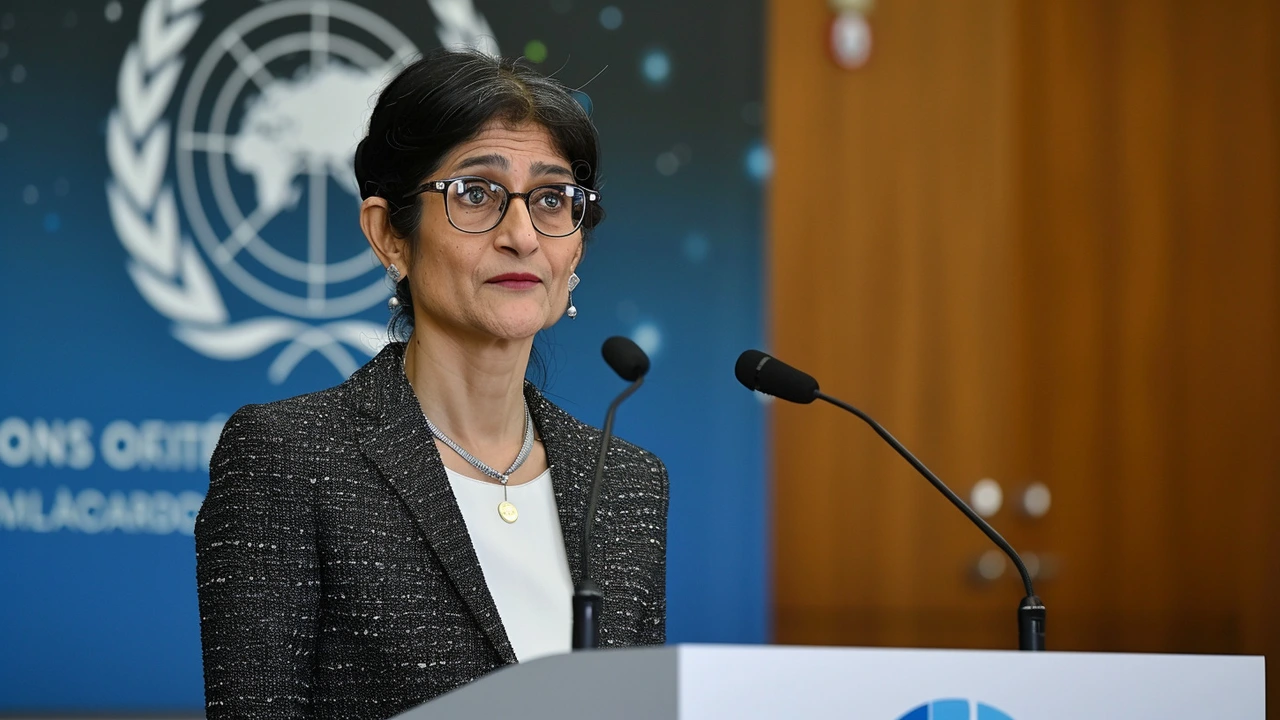Introduction to UNOOSA and Portugal's Role in Space Exploration
The modern era of space exploration has opened up new frontiers, presenting both opportunities and challenges for the international community. As nations race to enhance their presence in outer space, the need for coordinated efforts and multilateral cooperation has never been more crucial. The United Nations Office for Outer Space Affairs (UNOOSA) emerges as a pivotal player in this arena, with the mandate to promote international collaboration in the peaceful use and exploration of outer space. Portugal, a nation with a deep-rooted history of maritime exploration and burgeoning space ambitions, has the potential to become a key partner in these efforts.

The Importance of Multilateral Cooperation in Space
Space exploration is no longer the domain of a few superpowers; it has become a global endeavor requiring collective efforts and shared resources. The ongoing negotiations for a new international treaty on the use of outer space underscore the significance of this cooperative approach. The stakes are high, and the need for a robust framework that governs space activities is imperative. UNOOSA, tasked with fostering international cooperation, is uniquely positioned to lead these efforts. Its role is not merely bureaucratic; it is about building bridges between nations and ensuring that the benefits of space exploration are equitably distributed.

Portugal's Historical and Contemporary Ambitions
Portugal's history is interwoven with tales of maritime explorers who charted unknown territories, bringing the world closer together. This legacy of exploration continues today, albeit from the seas to the stars. Portugal's current space ambitions are driven by a vision to become a significant player in the space sector. The country has made substantial investments in space technology and infrastructure, aiming to boost its capabilities and contribute to global space endeavors. Portugal’s strategic location, combined with its commitment to innovation, positions it as a crucial partner in the global space community.
Overcoming Geopolitical Tensions
One of the major hurdles in fostering multilateral cooperation in space is the existing geopolitical tensions among nations. Historical rivalries and contemporary political dynamics often spill over into space activities, complicating collective efforts. However, the success of any international treaty on the use of outer space will largely hinge on the ability of countries to set aside their differences and work towards common goals. UNOOSA and Portugal, through diplomatic channels and collaborative projects, can play instrumental roles in bridging these divides. Their efforts must focus on creating an inclusive framework that prioritizes peace, security, and sustainability in space.
Addressing Global Challenges
The exploration and utilization of outer space have profound implications for addressing some of the most pressing challenges faced by humanity. Climate change, for instance, can be better understood and mitigated through space-based observations and technologies. Satellite data is indispensable for monitoring environmental changes, detecting natural disasters, and managing resources efficiently. A cooperative approach to space exploration ensures that these benefits are not confined to a few but are accessible to all nations, particularly those with limited capabilities. UNOOSA’s mandate to promote international collaboration is precisely what is needed to harness space technologies for the greater good.

Conclusion: A Unified Effort for a Shared Future
The future of space exploration hinges on the ability of the international community to collaborate and create a sustainable framework for the use of outer space. UNOOSA and Portugal, with their respective strengths, have pivotal roles to play in this endeavor. By fostering multilateral cooperation and overcoming geopolitical tensions, they can help establish guidelines that ensure the peaceful and equitable use of space. As nations navigate the complexities of space activities, it is crucial to remember that our actions today will shape the future for generations to come. In this light, giving UNOOSA and Portugal a chance to lead the way could be the key to unlocking a prosperous and inclusive future in space exploration.






Scarlett Mirage
June 5, 2024 AT 19:10When one contemplates the celestial tapestry, one is compelled to acknowledge the inexorable interplay of sovereignty and solidarity; the United Nations Office for Outer Space Affairs, in its gravitas, stands as a beacon of multilateral aspiration, a veritable agora for interstellar jurisprudence. Yet, the very notion that a modest nation such as Portugal might rekindle its Age of Discovery ethos, transposing mariners' sextants to orbital mechanics, is not merely poetic but a strategic imperative, for history teaches that no empire can endure without a shared vision of the heavens. The epistemic foundations of space law, anchored in the principle of common heritage, demand that all humankind reap the fruits of satellite telemetry, whether one dwells on the Lusitanian coast or the arid plains of Central Asia. Moreover, the geopolitical currents that buffet terrestrial geopolitics-trade wars, resource scarcity, ideological fissures-must not be allowed to calcify into orbital contention; instead, they should be diffused through the diplomatic conduits that UNOOSA meticulously cultivates. In this regard, we observe that Portugal's investment in ground stations and nanosatellite programs is not an isolated venture but a fulcrum upon which international cooperation can pivot. The analogous lesson from maritime history-where the establishment of standardized navigation charts averted countless shipwrecks-mirrors the necessity of a unified orbital registry, lest we spiral into a deleterious Kessler syndrome. Consequently, the convergence of Portuguese ingenuity with UNOOSA's regulatory stewardship may preempt such a catastrophe, fostering a resilient architecture for space traffic management. Let us also acknowledge that the climate exigencies of our epoch are such that Earth‑observing constellations, powered by multinational collaboration, constitute a planetary lifeline; the data thus garnered must remain unencumbered by parochial restrictions. Therefore, the ethical onus upon the international community is to enshrine equitable data sharing protocols, guaranteeing that vulnerable nations reap the benefits of predictive flood modeling and agricultural monitoring. The moral calculus, then, elevates cooperation above competition, situating the shared future of humanity as the ultimate prize. As we navigate this interstellar frontier, the dialectic between national ambition and global stewardship must be resolved not through hegemonic dominance but through inclusive deliberation, wherein Portugal's historic daring is harnessed as a catalyst for collective progress. In sum, the synthesis of UNOOSA's diplomatic mandate with Portugal's nascent space capabilities heralds a paradigm shift-one that may well redefine the contours of planetary governance and ensure that the final frontier remains a realm of peace, possibility, and profound shared destiny.
Ian Sepp
June 14, 2024 AT 06:30It is noteworthy that multilateral frameworks, such as those advocated by UNOOSA, provide a structured environment wherein emerging space actors can contribute responsibly, and Portugal's recent investments exemplify this collaborative spirit.
Sweta Agarwal
June 22, 2024 AT 17:50Oh, sure, because the world totally needs another nation to launch tiny satellites; as if we don’t already have enough data to drown in, right?
Henry Cohen
July 1, 2024 AT 05:10look man space is huge and we cant all be NASA they all think they own the sky but really its just more rock floating around
Mark Langdon
July 9, 2024 AT 16:30Look, I get the excitement, but let’s cut the hype-Portugal can’t just throw a few cubesats up and expect to steer the whole space policy, yet it’s a solid step forward, so give credit where it’s due.
Ciara Russell-Baker
July 18, 2024 AT 03:50i think they’re overhyped, portugal isn’t a space powr yet, they’re just chasing a fad.
Aaron Samarita
July 26, 2024 AT 15:10Another day, another press release about “groundbreaking” missions that will probably sit on a shelf while the real work happens elsewhere…
Daisy Pimentel
August 4, 2024 AT 02:30We must remember that the pursuit of the stars is not merely a technical endeavor but a moral one; to ignore the collective good for national prestige would be a betrayal of our shared humanity. Portugal’s historical narrative of exploration carries an ethical charge that should inform its modern aspirations. By aligning with UNOUNOOSA, they signal a willingness to place peace above power. This alignment, however, must be more than symbolic-it requires concrete commitments to data sharing and equitable access. Only then can the lofty ideals become a lived reality.
Ellen Ross
August 12, 2024 AT 13:50One cannot help but note the subtle irony: as we debate the ethical frameworks governing the cosmos, the very act of posting such commentary mirrors the intellectual posturing that one might find in an academic symposium on interstellar jurisprudence-perhaps a touch pretentious, but undeniably thought‑provoking.
Fabian Rademacher
August 21, 2024 AT 01:10You know there’s a reason the UN keeps pushing for “peaceful use” of space-it's a smokescreen to hide the fact that the elite are already setting up secret lunar bases, and any cooperation is just a way to keep us all in the dark.
Terrell Mack
August 29, 2024 AT 12:30Hey folks, I think it’s great to see countries like Portugal stepping up; every new player adds fresh ideas and helps keep the space community vibrant.
Dawn Waller
September 6, 2024 AT 23:50Wow-what a profound revelation! It’s almost as if we’ve never heard that “peace > power” before, huh? Maybe next we’ll get a meme about it.
Grace Melville
September 15, 2024 AT 11:10Space data should be open to all. 😊
Ashlynn Barbery
September 23, 2024 AT 22:30Indeed, the democratization of satellite‑derived information not only fosters scientific advancement but also empowers vulnerable communities to make informed decisions regarding climate resilience and resource management.
Sarah Graham
October 2, 2024 AT 09:50I totally agree with the sentiment that inclusivity matters; perhaps we could organize a joint workshop where emerging space nations share best practices under UNOOSA’s guidance.
Jauregui Genoveva
October 10, 2024 AT 21:10Portugal joining the space club? 🤔🚀 Sure, why not-let’s see some cool selfies from orbit! 😜
naman sharma
October 19, 2024 AT 08:30Considering the pattern of selective technology transfer, one might speculate that the purported “cooperation” is a strategic maneuver aimed at securing proprietary algorithms under the guise of multilateralism.
Quinten Squires
October 27, 2024 AT 18:50Space law, as codified in the Outer Space Treaty, clearly delineates that no sovereign claims can be made on celestial bodies, yet nations interpret this loosely to justify resource extraction; the nuance lies in the balance between scientific use and commercial exploitation, and without robust enforcement mechanisms, the treaty risks becoming a symbolic document rather than an operative framework; moreover, the rise of private actors introduces a layer of complexity that the original drafters could not have anticipated, meaning that policy updates are urgently needed to address issues such as debris mitigation and spectrum allocation.
Tyler Manning
November 5, 2024 AT 06:10While it is commendable that various states seek partnership, one must not overlook the fact that only those nations with a genuine commitment to technological sovereignty should be entrusted with leadership roles in shaping orbital policy.
james patel
November 13, 2024 AT 17:30The proposed framework aligns with current standards for data interoperability, leveraging open APIs and adhering to ISO 19115 metadata conventions, thereby facilitating seamless integration across heterogeneous platforms and ensuring that downstream analytics can be performed without excessive overhead.